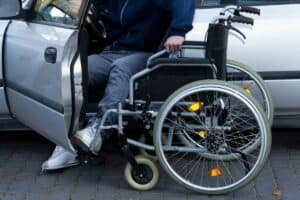
Some individuals with special needs may hold a driver’s license, and others may not, depending on the severity of their special needs and their ability to safely operate a motor vehicle. Furthermore, whether a legal guardianship exists for a person with special needs can directly impact whether that person can hold a driver’s license. Since guardianship is often a critical aspect of future planning for family members with disabilities, families should be aware of the effects that guardianship can have on the ability of a person with special needs to drive.
Types of Guardianships and the Right to Hold a Driver’s License
Different types of guardianships for individuals with special needs exist under Illinois law. If a person with special needs is subject to a guardianship, the type of guardianship in place can impact whether the person can hold a driver’s license under Illinois law.
Limited Guardianships
One common type of guardianship is a limited guardianship. Under a limited guardianship, the guardians have the authority to make some, but not all, decisions for the person subject to the guardianship. A court order in a limited guardianship must specifically list the powers that the guardian has. For example, a limited guardianship might authorize the guardian to manage the ward’s bank accounts and financial matters. Still, it might not authorize the guardian to make healthcare decisions for the ward. As a result, an individual with special needs subject to a limited guardianship can still hold a valid Illinois driver’s license if they are otherwise eligible.
Plenary Guardianships
On the other hand, plenary or full guardianships give a guardian full authority to make all financial and personal care decisions for a person with special needs. A plenary guardianship can exist for a person’s estate, person, or both. Under the Illinois Vehicle Code, a person subject to a plenary guardianship may NOT hold an Illinois driver’s license. If the person has a valid Illinois driver’s license when a court grants a plenary guardianship, their driver’s license automatically becomes void.
A plenary guardianship of the person typically is necessary when an individual’s disability causes them to lack sufficient understanding or capacity to make or communicate responsible decisions about the care of their person. As a result, the guardian must make decisions for the ward concerning the support, care, education, maintenance, and professional and medical services necessary for the individual.
A plenary guardianship of the estate is often sought when a person has assets in their name and does not have the capacity to make decisions about their estate or financial affairs due to disability or incapacity. Therefore, the guardian makes all decisions about the management of the ward’s assets.
Other Eligibility Requirements for Individuals with Special Needs to Drive
In addition to the effects that guardianship can have on the ability of an individual with special needs to drive, the Illinois Vehicle Code also places additional restrictions on people who have physical or mental disabilities in some cases. More specifically, individuals with a physical or mental disability that may keep them from safely operating a vehicle may not have a valid driver’s license unless they can provide a verified written statement from a medical professional stating that the driver’s disability does not pose a danger to public safety.
In other words, all drivers with a disability that could affect their ability to operate a vehicle safely must disclose their disability. They also must prove through a medical report that their disability does not impact their ability to drive safely. Furthermore, the state can issue a restricted license if their disability requires some accommodations for them to drive safely. Drivers with restricted licenses must comply with the restrictions stated on their licenses. For drivers with special needs, these restrictions might include the following:
- Driving only in specially adapted vehicles, such as those with hand brakes;
- Driving with prosthetics or adaptive devices;
- Wearing glasses or contact lenses; or
- Not driving at night.
In some cases, the state may require drivers to sign a medical agreement stating that they will obtain routine medical care and take all medications as prescribed.
Allow Us to Assist You with Your Legal Needs
Rubin Law is the only Illinois law firm exclusively dedicated to providing compassionate legal services for children and adults with special needs. In addition, we offer unique legal and future planning techniques to meet your family’s individual needs. At our law firm, you can discuss all your needs and objectives with an experienced Illinois special needs trust lawyer.
Call us today at 866-TO-RUBIN or contact us online to learn more about the services we can offer you and your family.



